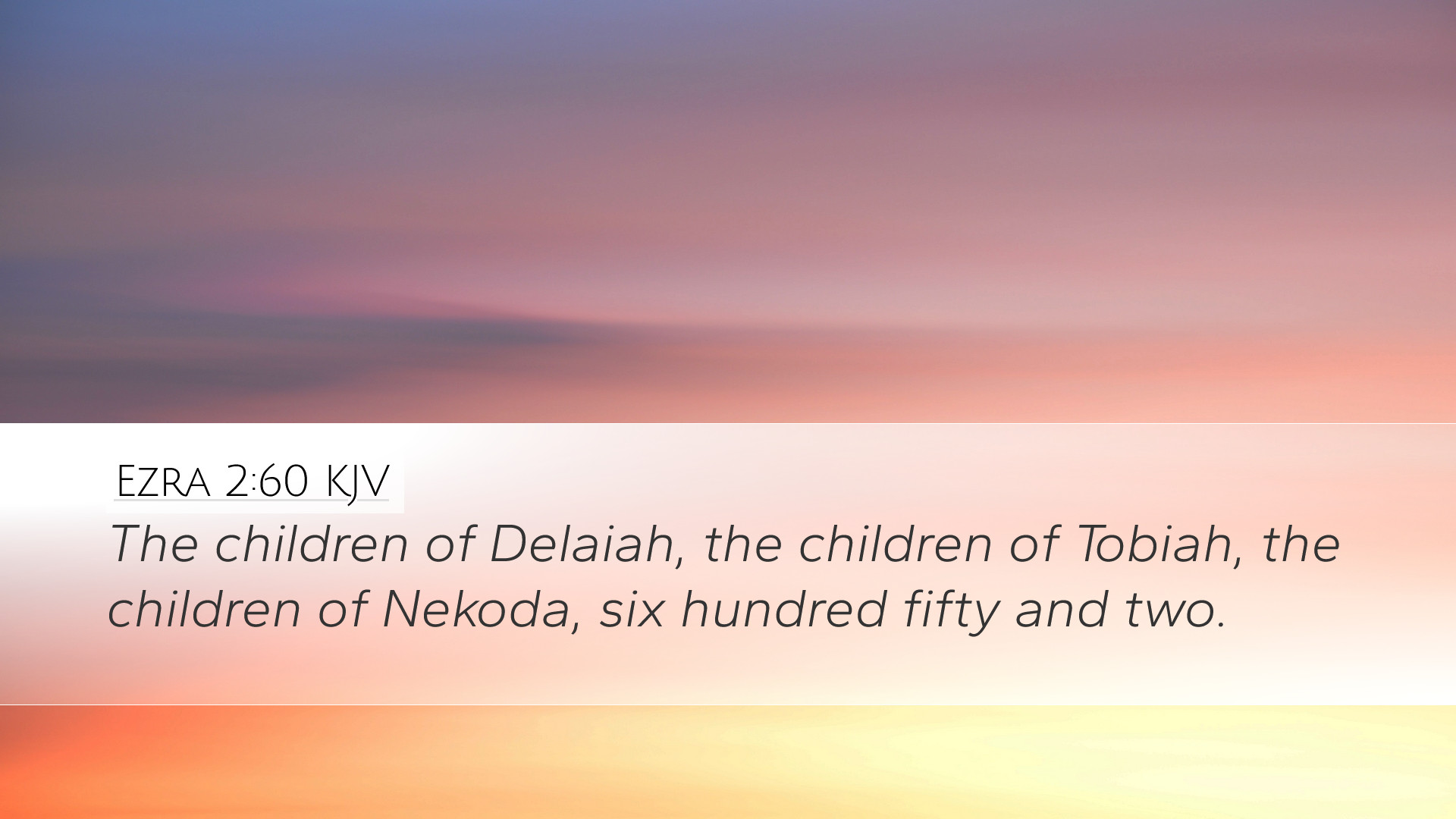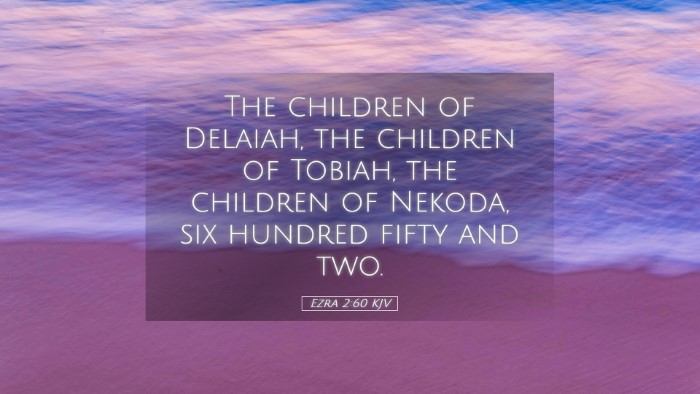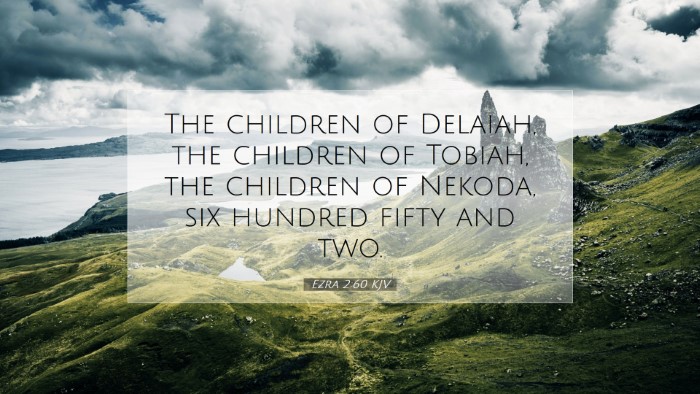Commentary on Ezra 2:60
Ezra 2:60 reads: "And the children of Delaiah, the children of Tobiah, the children of Nekoda, six hundred fifty and two." This verse is part of the genealogical lists provided in the book of Ezra, documenting the return of the exiled Jews to Jerusalem.
Contextual Background
The book of Ezra chronicles the return of the Jewish remnant from Babylonian captivity and the rebuilding of the Temple. Chapter 2 provides a detailed census of those who returned, signifying both their identity and the fulfillment of God's promises to restore His people.
Insight from Commentaries
Matthew Henry's Commentary
Henry emphasizes the significance of the genealogical records in establishing the continuity of the covenant community. The lists serve not merely as historical facts but as affirmations of God's faithful promise to the descendants of Israel. The mention of the children of Delaiah, Tobiah, and Nekoda reflects the family units that were instrumental in the rebuilding efforts. Their collective identity is crucial for understanding the role of community in God's redemptive plan.
Albert Barnes' Notes on the Bible
Barnes adds that the numbers associated with each family also symbolize the strength and vitality of those returning. The count of six hundred fifty-two represents a significant demographic that would be involved in the reconstruction of Jerusalem, illustrating the communal effort required for restoration. This detail underscores the importance of each individual in the larger narrative of God's action and grace. Notably, the families mentioned had historical associations with opposition to God’s work, which highlights the transformative nature of God's redemptive community.
Adam Clarke's Commentary
Clarke provides an analysis of the names listed in this verse, pointing out that "Delaiah" and "Tobiah" are significant. The name "Tobiah" means "Yahweh is good," symbolizing a turning away from past animosity towards a recognition of God's mercy. Clarke emphasizes that the list implies the restoration not just of personal fortunes but of community relationships. The mention of "Nekoda" suggests a lineage that was once associated with the priests, indicating that among these returnees are individuals of spiritual significance poised to lead and guide the restored community in Jerusalem.
Theological Implications
This verse, while straightforward in its genealogical nature, carries profound theological insights. It illustrates several key themes important for scholars, students, and theologians:
- The Importance of Community: The returnees are not merely individuals, but part of a larger community that God seeks to restore. Each individual plays a role in the fulfillment of God's promise.
- Identity and Heritage: The genealogical lists affirm the identity of the Jewish people, emphasizing their role in salvation history as a chosen nation, now returning to reclaim their land and heritage.
- Transformation through God’s Grace: The families mentioned, particularly those like Tobiah, hint at the transformative power of God in turning adversaries into allies, showcasing the redemptive nature of His plan.
- Restoration of Worship: Many of those returning would eventually participate in the re-establishment of temple worship, reflecting the centrality of worship in the life of the restored community.
Conclusion
Ezra 2:60 serves as a brief yet powerful testament to God’s faithfulness in preserving and restoring His people. The mention of family names and numbers within this verse encapsulates vital themes of community, identity, and God’s grace. For pastors and theologians, this verse provides a rich tapestry to explore the intricacies of God’s covenant promises and the lived realities of those who respond to His call. It invites all readers to recognize their role within the ongoing story of redemption that God is weaving through history.


